A Farmers’ Markets Festival was held on October 10 in one of Sofia’s central parks – Zaimov Park. The aim was “to popularize the advantages of this form of direct sales” between farmers and end consumers.
It may sound a bit strange to be popularizing something that has been in existence since time immemorial. Well, here in Bulgaria over just two decades, we have done our best to banish farmers from market places. And one of the reasons was a misconception of the application of the strict European norms regarding food, without distinguishing between petty farmers and artisans and large-scale ones. And this with a good deal of lobbying by major farming raw materials and products manufacturers - the petty farmers just had no say in the matter. In 25 years of restituted freedom, democracy and market economy, petty producers never got down to organizing farmers’ markets themselves, neither did the state undertake to help them. This task was shouldered by the consumers themselves who quickly pooled their efforts to form networks providing access to high-quality food.
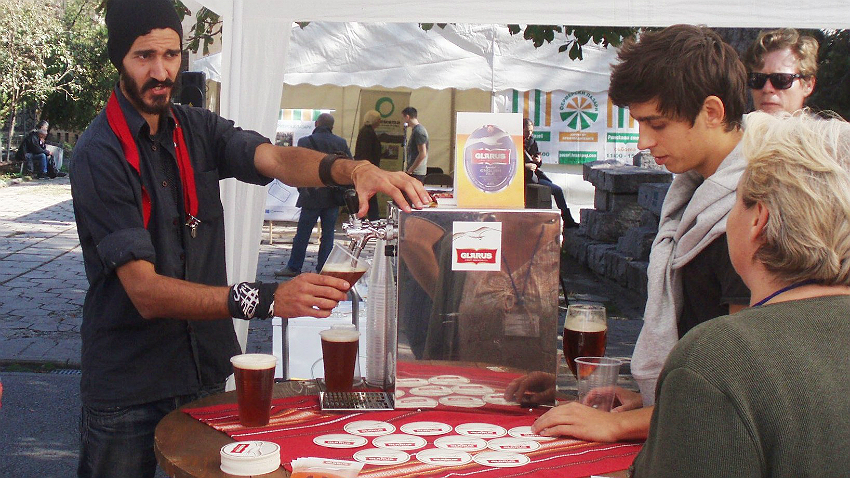
Paradoxically, it was the new information technologies that brought the age-old form of direct sales of farm products back to life. Virtual consumer networks sprang up for tracking down petty producers of high-quality, natural products and organizing their supply. One such network, Hrancoop, was at the root of the return of the farmers’ markets to Bulgaria’s four biggest cities – Sofia, Plovdiv, Bourgas and Varna. Not without the financial assistance of the EU, whose new common agricultural policy favours the so-called short food supply chains i.e. with a minimum of intermediaries between producers and consumers and the shortest distances. The creation of what are known as local markets, where fruit and vegetables come from a distance of no more than 120 kilometers is encouraged.
“We decided to lend a hand in creating farmers’ markets, which we think could help pull petty and middle bracket producers out of the slump most of them are in here in Bulgaria,” explains Ivailo Popov from the For the Earth environmental association. “Like all people around the world we want to have high-quality food on the table. Whether it will be biologically certified food or food produced in an environmentally friendly way, does not really matter. In any event, it is bound to be much better than the anonymous food we buy at supermarkets. The new common agricultural policy stakes heavily on the creation of different kinds of short food supply chains. Cooperative and farmers’ markets are a case in point in this country.”
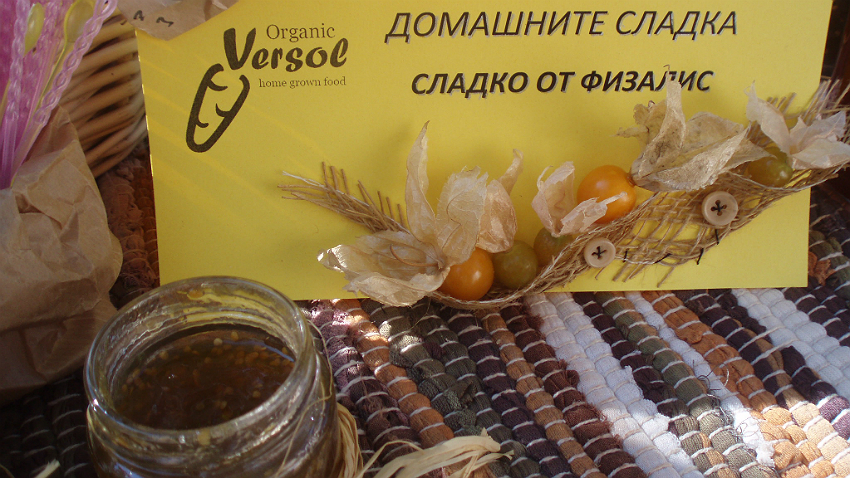
Decree No. 26 of the Ministry of Agriculture and Food on the direct sale of farming produce, incidentally approved very late in the day, in 2010, was a veritable curse for petty farmers because the norms it imposed on them were almost as stringent as those imposed on large-scale producers. The decree was particularly restrictive with regard to animal products. And it never actually worked, with the exception of the production of honey and eggs. Its last amendment from July this year finally got things moving, though it is still rather cumbersome. According to Stoilko Apostolov, head of the Bioselena foundation, facts speak for themselves. “In the first four years since the decree was approved, just three small-sized dairy and meat processing enterprises were registered. Since its latest amendment in July, in just three months we have another five,” he says. Ivailo Popov agrees:
“The fact that we have a waiting list of farmers who want to join our markets is indicative in itself. We used to have to invite them, now they come to us.”
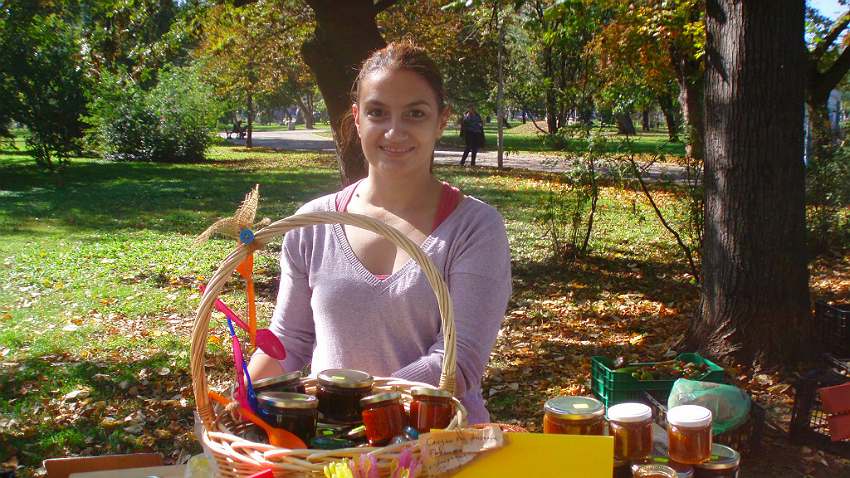
Producers from neighbouring regions also came to the Farmers’ Markets Festival in Sofia, and quite a few of them had organic products to offer. One such farmer is Zlatina Dimitrova from a village near Mezdra, who was selling exotic fruit jams – goji berry and physalis.
“The only access we have to clients right now are these farmers’ markets,” she says. “We just can’t get a foothold on the conventional markets. Our products, which require much more work, are not competitive compared to the conventional goods on offer there.”
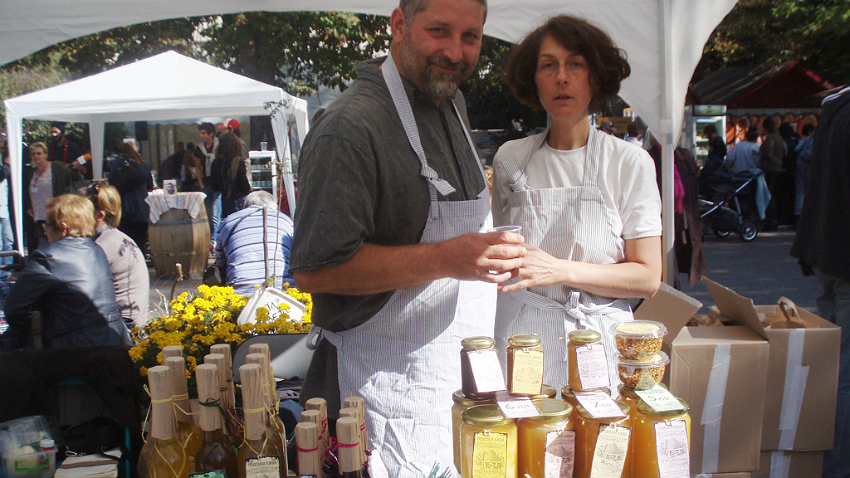
Beekeeper Nikola Nikolov from Borovan near Vratsa was selling honey and natural juices:
“Our syrups are made of honey and lemon, instead of the much less healthy sugar and salt of lemon. They have to be kept in a refrigerator but they are so much more delicious. We have fig, peppermint and elderberry juice. We don’t have a big apiary. We sell on the farmers’ markets in Sofia.”
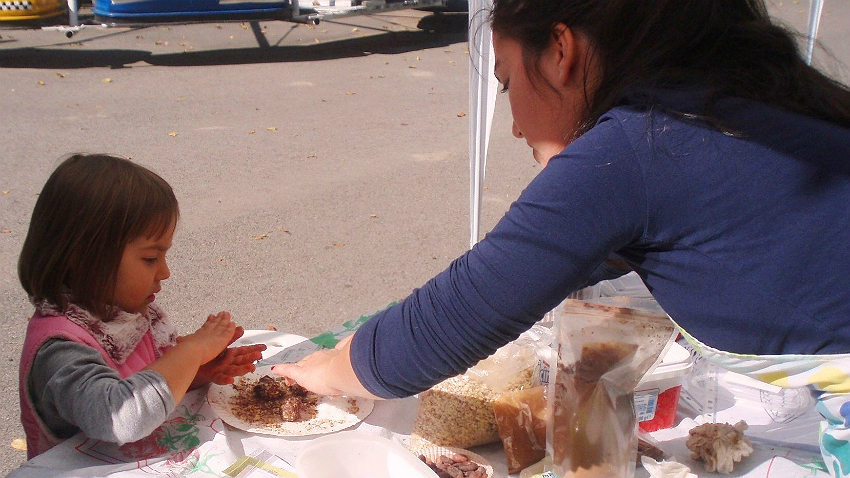
Shazlin Babikyan says she is an amateur. She is offering hand-made sweets, chocolate and raw cake which she sells online. At the festival she was showing children aged 4-5 how to make sweets out of raw and healthy products:
“For example, the sweetness comes from the dried fruit – figs, dates, apricots, and to hold them together – ground walnuts, almonds, desiccated coconut, cocoa. I show the children how chocolate is made, what cocoa looks like before it is processed.”
English version: Milena Daynova
Photos: Maria Dimitrova-Pichot
The Martenitsa Festival was held in Brussels f or the third consecutive year . Cultural organizations from Bulgaria, Romania and Moldova presented their country's traditions related to the "Baba Marta" holiday, which heralds spring. The initiative..
Measurement equipment installed at the Bulgarian Antarctic base "St. Kliment Ohridski" has been collecting valuable data on solar activity and its relation to the Earth's magnetic field for two months. The research is part of Bulgaria's first polar..
558 Bulgarians aged 18, selected from 1,785 applicants, will be able to embark on their dream journey by train across Europe, learn from other cultures and build new friendships. They have been selected to receive a free travel pass through the..
Exactly a month after the Bulgarian National Radio solemnly celebrated its 90th anniversary, history continues its dialogue with us, its authors. With a..

+359 2 9336 661
